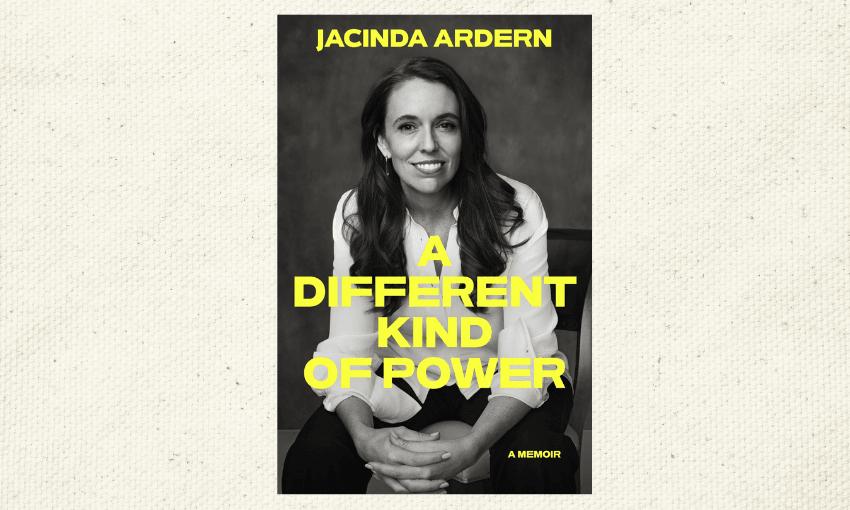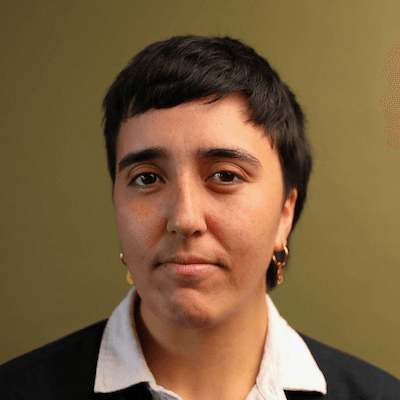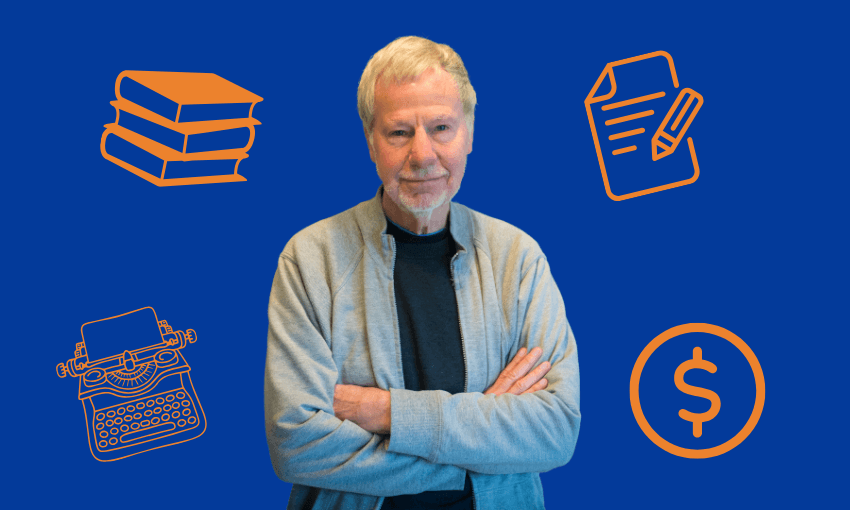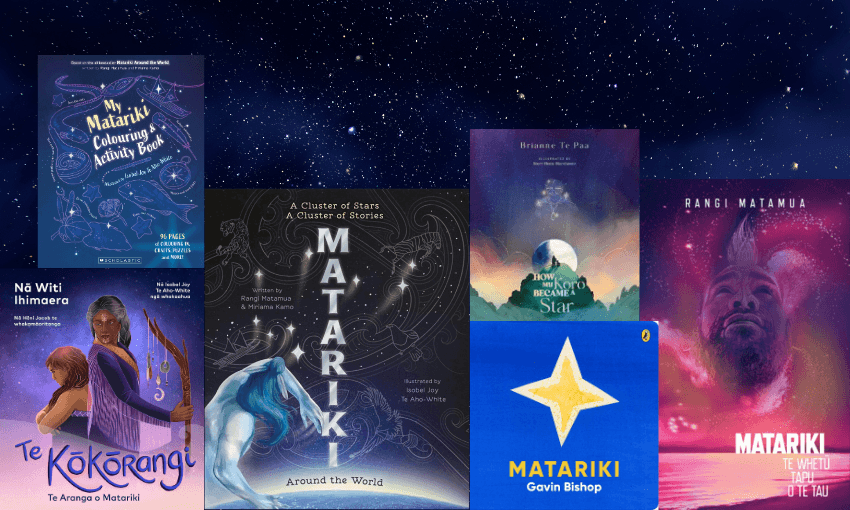Having written a whole book on her life, Madeleine Chapman reviews Jacinda Ardern’s version of events.
This book was always going to have one unsolvable tension: Jacinda Ardern as politician vs Jacinda Ardern as global celebrity. I figured A Different Kind of Power would either veer political and therefore be cloaked in Ardern’s usual restraint as a prime minister or it would veer celebrity and reveal the full emotion and drama behind the politician while conveniently brushing over policy and legacy.
Somehow it did neither.
An early and necessary disclaimer: I have written and had published a book about Jacinda Ardern’s life and career. The names are similar (A New Kind of Leader vs A Different Kind of Power), the covers share the same design template and the blurbs offer the same promise: an insight into the “real” Jacinda Ardern and what it means to be an empathetic leader. Both books were written and published with an international audience in mind, one in 2020 and the other just yesterday.
The difference in our books is that Ardern had no involvement in mine – I couldn’t even convince her to confirm whether or not she drank Fanta as a child, such was her refusal to participate (though interestingly it is raised in her memoir and still not confirmed). Instead I did what all assigned biographers do: I collected all publicly-available material, spoke to the few acquaintances willing to share stories, and cobbled them together for an international audience.
All this to say that I was particularly excited to read A Different Kind of Power to find out all the moments I horribly misrepresented as someone who had no access to Ardern’s mind while writing her life story. I wanted to learn the internal monologue behind the speeches I was only able to transcribe; the political arguments behind decisions I could only explain after the fact; and the emotions behind the dramatic moments I did my best to describe as if I was there.
Much to my disappointment, there was a surprising amount of overlap.
Ardern’s memoir spends a long time (at least a third of the book) on her life before she’s even become a politician, and it works to, at times clunkily, foreshadow her later career decisions. There are detailed accounts of growing up very young in Murupara, with some cloying observations of poverty and hardship that allegedly turned her political at the age of six. But just as quickly the tone is saved by a genuinely compelling and evocative chapter on her mum Laurell and her nervous breakdown.
Throughout the book but particularly during her early chapters, Ardern lays out the key people in her life with a refreshing care and attention. As should be expected in one’s own memoir, each character ultimately serves to help explain why Ardern is the way she is now. Her mother’s struggles as a young parent reveal the complexities of motherhood and the importance of a village. Her aunt Marie is a window to a caring world not dictated by religion. And her best friend’s brother Theo’s tragic death by suicide as a teenager serves as a catalyst for both Ardern as a future politician and questioner of her own religion.
Writing supporting roles in memoirs is an inherently selfish act, but one that Ardern executes better than most. She gives her loved ones pep and emotion, anger and depression, conservatism and humanity, all at once. I would have gladly read another five pages dedicated to Laurell’s life as a young mother in a tiny town, deeply depressed and doing whatever it takes (in her case, trout fishing unsuccessfully in silence for hours at a time) to get by. I would pay money to see a movie on the life of Ardern’s aunt Marie, who was severely burned as a child and strutted influentially through Ardern’s childhood and young adulthood like a swearing Mary Poppins. I had tears in my eyes reading about Theo and his death, having only been introduced to him half a chapter earlier.
These early portraits set the scene for an equally nuanced, flawed and messy perspective on her own life as an adult, but as she so often did as a prime minister, Ardern doesn’t give nearly enough away.
It takes a certain rare skill to be able to zoom out from one’s life just enough to see what’s most interesting. To play the part of your own first witness. Very few public figures have it, and it’s why the best “memoirs” are those entrusted almost entirely to ghostwriters (think Agassi’s Open, written by JR Moehringer). A public figure unleashing every thought and memory out of their head and into someone else’s, whose job is to find the best parts.
Ardern has never been someone willing to let every thought out, and I can’t imagine she would have entrusted the telling of her story to anyone else. With a career defined almost entirely by restraint, poise and effective communications, it was perhaps too much to hope for an unfiltered memoir.
There are of course lovely insights into her life as a prime minister and new mother. The moments that are simply presented, rather than analysed, are the most compelling. Perhaps the most fascinating for me (though apparently not for any other reviewers) was the farcical charade required to keep her early pregnancy a secret, even from her security detail. A fake visit to see a “friend”, complete with handbag and bottle of wine, that was in fact an obstetrician ready to do her first ultrasound, was a fun and sadly rare break from the expected fare. Similarly, her straightforward recounting of struggling with breastfeeding and, eventually, her breast cancer scare that led to the classic burnout trope of wondering if falling ill would mean she had an excuse to leave her job. These moments are simply walked through, rather than wrung out for meaning and mottos, and I could have done with a lot more of that approach.
There are hints scattered throughout showing where A Different Kind of Power could have gone if Ardern had taken a more, well, transparent approach. Frequent mentions of feeling “boiling rage” at a situation as a child or “fuming” at Australian PM Scott Morrison as a leader are immediately diluted by the calm, reasonable actions that follow. And that would be illustrating her thesis nicely except there is no outlet. After the fifth mention of anger/rage/fuming, I expected it to culminate in a private moment of release. Who knows, a thrown mug or a screaming match or something. But no. She feels the rage, she suppresses it, she moves on. And when she finds it slipping through, even a little bit, she knows it’s time to leave politics. Even in this book years later, she does not permit herself any form of emotion beyond acknowledging that at some point in the past she felt anger.
Actually, the closest thing to a release reads accidental. When remembering the parliament protests, Ardern writes with a disdain otherwise reserved for David Cunliffe, David Seymour and Scott Morrison. She writes of refusing to speak to them or entertain their protests. And ends with a tone bordering on patronising as she explains that in some way, she saved those people’s lives and that’s what keeps her from responding with anger.
It leaves you wondering whether she has a lot of anger and resentment she needs to work through now or whether she grew up in such a tame, Mormon household (no swearing, no caffeine) that she equates general annoyance and pity with steaming rage. Whichever the reality, I would have loved to read about it.
If you were hoping for any reflection on political decisions (or lack thereof), you won’t find them here. In fact, despite my own personal interest in such a thing, I found myself quite bored by the Covid chapters plonked at the end. It may have been because I was living in Auckland in 2021 and would rather not read about it, but mostly it was because after accepting that this was in fact a celebrity memoir, the halfhearted attempts to very simply explain massive political moments felt out of place.
Whether or not Ardern wrote this book herself (there is an “editor” profusely thanked in the acknowledgements) is by the by. It is the story that she wanted to tell, or at least the parts of it she wanted to tell. Ardern ends her book by referring to herself as a “speechwriter”. And her speeches are what have defined her career, whether impromptu or nervously rehearsed. But they’re also deliberately limiting in what they offer. As a memoirist, Ardern has taken the same approach – offering just enough while still holding her cards close to her chest. It’s an impressive move from someone who will now continue to be able to live a very private life while being extremely famous and a successful memoirist.
But if we as an audience ever want to learn the intimate details of Ardern’s political legacy or, separately, the true picture of her as a globally admired woman filled with anger and resolve, someone else will have to write it.





